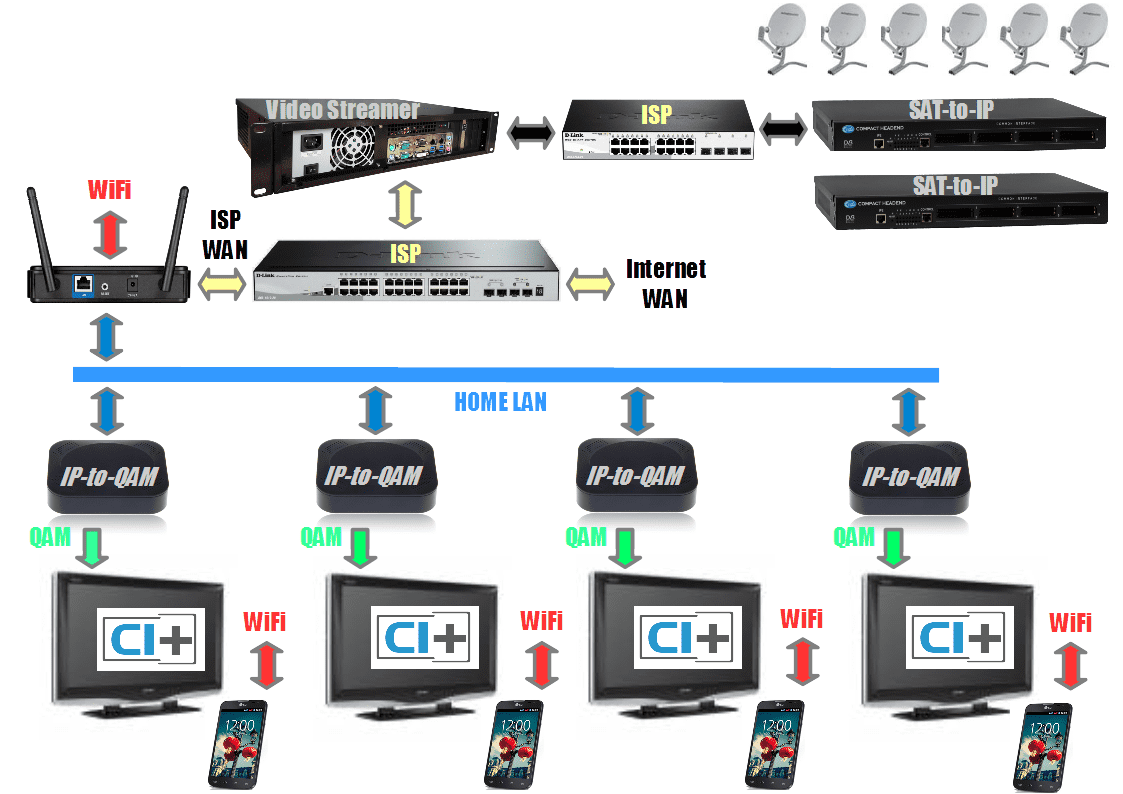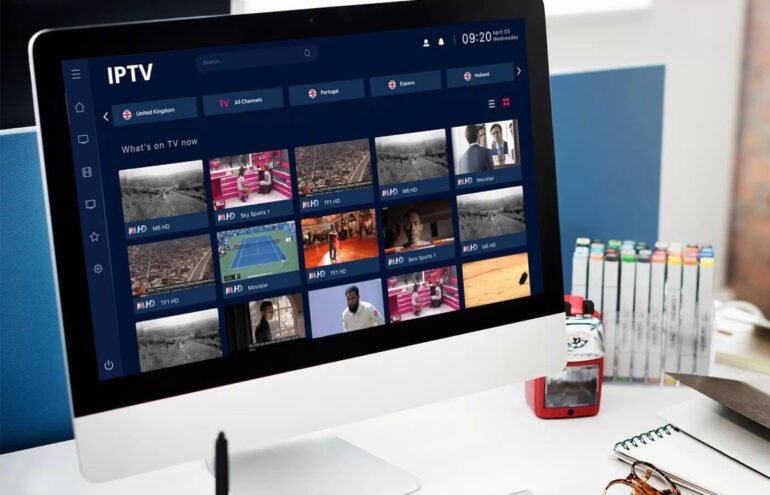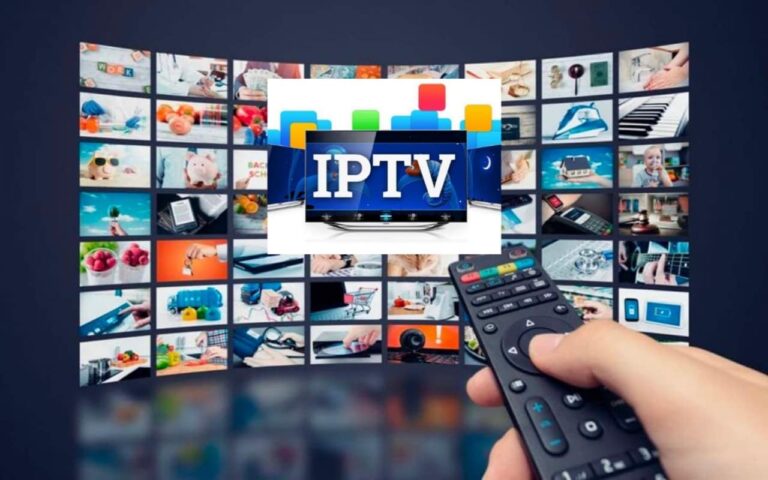In the era of technology proliferation, Internet Protocol Television (IPTV) stands out as a groundbreaking evolution, enabling the delivery of television content over IP networks. IPTV is a system where digital television services are delivered over the internet.
It’s a departure from traditional broadcast methods, bringing a myriad of operational benefits, enhanced customization, and a potentially richer user experience. Mastering IPTV involves a thorough understanding of its components and creating efficient management systems to ensure seamless and reliable service delivery.
What is it?
IPTV management system is the distribution of television content over Internet Protocol networks. Unlike conventional cable or satellite systems, it allows viewers to stream media content through their internet connection, offering more flexibility and interactivity. It comes in three primary types: Video on Demand (VOD), Time-Shifted Media, and Live IPTV.
The basic architecture includes:
- Content source ─ This refers to the channels or videos provided by the broadcasters.
- Service provider ─ The organization that delivers the IPTV service to the end-user.
- User network ─ The internet connection or network used by the consumer.
- User-end devices ─ Devices like computers, smart TVs, or set-top boxes used to access IPTV services.
Effective management systems ensure the seamless delivery and accessibility of various IPTV services. It involves handling content distribution, service fulfillment, customer service, billing, and network management. An efficient management system can mean the difference between success and failure in the competitive IPTV market.
IPTV Management Components

Content Management
Content management involves organizing, storing, and delivering content in various formats. It ensures that viewers have access to a wide array of content that is easy to navigate and view.
Network Management
Effective network management is crucial for ensuring the smooth delivery of these services. It involves monitoring and managing the network infrastructure to prevent service interruptions and ensure high-quality streaming.
Customer Management
Customer management includes customer service, billing, and account management. It’s essential for maintaining customer satisfaction and ensuring timely and accurate billing for the services provided.
Challenges in IPTV Management
Network Congestion
Network congestion can lead to buffering, decreased video quality, and overall poor viewer experience. Efficient network management is crucial to avoid congestion and ensure seamless content delivery.
Content Security
Ensuring content security is paramount to protect copyrights and restrict unauthorized access to paid content.
Compatibility
Compatibility issues can arise with different user-end devices and networks. Efficient management ensures that IPTV services are accessible on various devices and network configurations.
Mastering the Art of IPTV Management

Employing Advanced Technologies
IPTV management systems can benefit from cutting-edge technologies, such as Artificial Intelligence (AI) and machine learning, for predictive maintenance, customer service, and network optimization.
Ensuring Robust Security
Effective management ensures robust security to protect content, customer data, and network infrastructure. Secure systems inspire customer confidence and ensure compliance with legal standards.
Providing Comprehensive Customer Support
Excellent customer support is fundamental to retaining subscribers and resolving any issues promptly, contributing to customer satisfaction and loyalty.
Performance Monitoring and Maintenance
Regular monitoring and maintenance ensure that the IPTV system operates efficiently, with minimized downtime and optimized performance.
Best Practices for Efficient IPTV Management Systems
In the continual pursuit of mastering IPTV and ensuring an efficient management system, it is imperative to adopt certain best practices.
Continuous Assessment and Improvement
Constant assessment and refinement of the IPTV management system are paramount. By conducting regular system evaluations, providers can detect and rectify issues, ensuring uninterrupted and high-quality service.
Utilizing Analytics
Leveraging analytics tools can offer crucial insights into viewers’ behavior, preferences, and issues. These insights can guide improvements, help in personalizing content, and enhance customer satisfaction.
Adopting Scalability
IPTV service providers must ensure that their management systems are scalable to adapt to growing subscriber numbers and evolving technology. Scalable systems can accommodate growth efficiently without compromising on service quality.
Ensuring Compliance
Compliance with industry standards and regulations is not just a legal necessity but also a mark of credibility and reliability. It reassures subscribers about the provider’s commitment to quality and security.
Future Trends in IPTV Management

Integration with Emerging Technologies
Emerging technologies like blockchain and 5G are set to revolutionize IPTV management systems. Blockchain can enhance content security and transparency, while 5G can significantly improve streaming quality and speed.
Enhanced Personalization
Future IPTV management systems will offer enhanced personalization, utilizing AI and data analytics to offer content recommendations and personalized user experiences.
Global Accessibility
With advancements in technology and infrastructure, IPTV services will become more globally accessible, transcending geographical limitations and offering diverse content to a global audience.
Practical Steps for Effective Management
Investing in Technology
Service providers should continuously invest in the latest technologies to enhance their IPTV management systems, ensuring they remain competitive and offer superior service.
Training and Development
Continuous training and development for staff ensure they are equipped with the necessary knowledge and skills to manage the system effectively.
Customer Feedback
Actively seeking and valuing customer feedback can provide valuable insights for improvement and innovation, ensuring the IPTV service continually meets and exceeds customer expectations.
Conclusion
Mastering it is a multifaceted endeavor encompassing a robust understanding of IPTV architecture and the development of efficient management systems. Efficient management systems, addressing content, network, and customer management alongside tackling the challenges in IPTV management, are crucial for ensuring reliable and high-quality service delivery.
Embracing advanced technologies, ensuring robust security, offering comprehensive customer support, and continuous performance monitoring and maintenance are key to mastering the art of IPTV management. When these aspects converge, they pave the way for a seamless, secure, and superior experience for both providers and subscribers alike.

